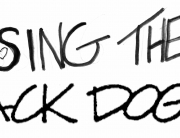Grief has a terrible effect on many people. To loose a child would be heartbreaking, but their are many other forms of lose that have the same effect. For some it is a pet, their job, a relationship, moving house or leaving where they grew up. The lose of innocence, the inability to live up or down to other people’s expectations, the list goes on. Grief does seem to get broken up and labelled as if one grief is worse than another. Grief affects people differently.
Change is the only constant in our lives and the one area most of us struggle. Change seems to equal negative stress. So what is stress, the best description seems to be the inability to deal with change.
Grief is it’s many colours is a form of stress and is definitely an inability to cope with change. The Seven stages of Grief are listed as:
Shock and Denial
Pain and Guilt
Anger and Bargaining
Depression, Reflection, Loneliness
And then on the upside:
Reconstruction and Working Through
Acceptance and Hope
Each one of these stages can operate independently or in unison with the others, overlapping and intertwining. It is possible to have different stages relating to different events and times in our lives occurring at the same time. The wide range of stressful events can lead to grief being played out on a multiple stages within the tapestry of our lives.. It is suggested the primitive birthing processes practiced in western hospitals geared to suitable delivery times leaves many with Post Traumatic Stress Disorder. Imagine life starting with PTSD, and then we build on it.
Each stage of stress can draw in similar unresolved, repressed or suppressed emotions making things very murky when we start to try to recover and heal.
One in four children have experienced sexual abuse, and this does not include the physical, verbal and emotional/mental abuse inflicted on our young. And then we have institutionalised abuse. Our whole system in geared to stress people. One only needs to watch or listen to the “Fake News” commercial media.
As a culture we have limited or in some cases lost our ability to cope and deal with change. mental, emotional, physical and spiritual resilience has suffered as we constantly seek the comfortable life.
Depression is rampant as is anxiety, both can be linked back to grief and our over stressed state of being and unhealthy lifestyles. Forced change makes our lives uncomfortable, and when we operate from the animal side of our nature we try and move away from the pain and seek more pleasure.This downward spiral can overwhelm us and we end up stuck treading water in one of the stages of Grief, or sometimes several.
Imagine as a little child your parents never really encouraged you as they did your siblings. A sense of disconnect develops. Some spend the rest of their lives seeking approval from parents and other authority figures. They create more situations were their needs are not met and the cycle of grief becomes convoluted and intermixed on many levels.
As adults these damaged little souls can become over achievers, argumentative and hard to live with as they continue to pursue, in some cases, dead people to make them understand they were wrong. Poor self esteem can lay hidden under the disguise of achievement. money, position and prestige.
Add the loss of a child, pet, significant partner(s) and the emotional soup becomes a quagmire. At this stage unwillingness to learn and change locks in. We stop listening to sound advice and adopt a “I know best “ attitude. The very thing that has brought humanity to it’s knees on several occasions in the past.
As discussed in Kissing the Black Dog, depression has many physical factors, grief is the same. The stinking thinking we develop from a lifetime of negative programming becomes the bars that bind us, holding us prisoners to our limitations. Neck problems have a connection with grief, it seems it is an area of the body where we the physical hold our the unresolved emotions.
I recently met a man who was in a mental ward due to self harm. We chatted for awhile before he told me his youngest child had been bashed and was severely brain damaged. For this man the option was to try and kill himself, his pain was so overwhelming it seemed the best option. As we continued to talk I asked if he had considered forgiveness. His hatred rose quickly. There was simply no way that was an option. Killing himself was, but forgiveness, no way.
Forgiveness can release neck pain. When I heard this i realised the connection between neck pain, grief and forgiveness. Lack of forgiveness is a form of stubbornness, of being right and unwillingness.
I find forgiveness a tricky path, under the disguise of forgiving tends to lie a stronger urge for revenge and to inflict pain to equal out our own hurt. I saw this in a conversation with a young woman, she was saying all the right words but the need for revenge coloured the narrative.
Forgiveness can heal our pain but is has many pitfalls and traps. The most common is spiritual arrogance, “I forgive you therefore I am better than you”. I recently spoke with a young person who said they were uncomfortable with forgiveness as it seemed to exonerate the other party. It was difficult for them to understand this was revenge not forgiveness. Coming from space of gratitude is the most healing way forward from what I can see.
When we are grieving we sometimes do not want to hear about the healthy options, our pain can be addictive and we are unwilling to feel the full depth of our loss and look for reasons to be grateful. The pain has a stronger pull and denial can offer safety. Remember we spoke earlier about the multiple interconnected levels of grief holding us in a state of powerlessness. We start to rise up the emotional scale towards anger, which in turn forces us to choose (unconsciously) to slip back to depression and pain. and the dance of Grief.
No one has the answers to dealing with our grief. No-one, except ourselves. We are the jailer and the holder of the keys. Grief eats at our souls until it either hurts to much and we give up or it makes us determined to lift ourselves up.
A side of grief not spoken about is Bullying and Grief. Many people are blind to the emotional manipulation played out by some people. Using grief to bully others into doing what they want is one of their devious tricks. This becomes obvious for those with their senses switched on to spot the Bully masquerading as the victim. Bullying can be spotted with statements like “You don’t understand” “How would you know?”, etc.
The Steps Back to Love.
Grief as hard as this sounds is a lack of love, a sense of lose or a waste of effort.
Four tools that can help us move closer to love again are:
Who Do You Listen To? In the end it is always yourself. In grief our animal self totally blocks out the angelic self. We get dragged into the vortex of negativity. We don’t want to listen to the quiet still nice within whispering directions to lead us out of the pain and into the sunlight of a more positive space.
The Training Balance Scale. When in pain we seek the How? How did this happen? How can I bring them back?, etc. The real question we need to ask is the Why. When we focus to much attention on how we are going to achieve an outcome we set ourselves up to fail. The “Why” focusses on our life mission, our greater goal in life. From what has happened what can we do to make the world a better place, a safer place and more caring? The question needs to be “What Do I Want?”
Teachability. To change there most be a high level of willingness to embrace an alternate view and way of operating and a willingness to learn. We are all sponges and when we are overflowing with negative experiences or locked in our pain our sponge is full. We need to recognise this and work towards wringing out the sponge so we can begin to learn better ways to operate. Willingness is the cornerstone of change. It is the rock bottom level on which we rebuild our lives. Without willingness nothing changes for long.
Four Levels of Consciousness
Unconscious Incompetence
You don’t know what you don’t know. This is a big step for those stuck in trying to prove they are right. They can not see what they are doing.
Conscious Incompetence
The first step towards healing – you know you don’t have all the answers and you may begin to seek assistance.
Conscious Competence
This is the uncomfortable stage of learning new ways of operating. Like driving a car, with practice you can do it
Unconscious Competence
This is the stage you do things without thinking about it.
Is this all theory?
Yes and NO. Much of what is written above comes from lived experience. I have not lost a child, I have lost good mates, my best mate, who happened to be a dog. I have had a our little cattle dog die in my arms. I have stood in a room and watched my Grand fathers soul go home. My father has passed and my Grandparents. For me the achilles heal when it comes to grief has always been relationships and their loss. The Steps Back to Love I used personally when I was in a very dark place I hope no one ever visits.
Being the author of Kissing the Black Dog I speak with many people about depression and stress. I have been abused when I seem not to give their “depression” the respect it deserves. In every case these people seem to be acting as Bullies, using their labelled condition as an excuse to take out their unfulfilled frustration on others.
Some of the above article may seem unsympathetic, it is! Sympathy is not a positive emotion, empathy is. One disempowers, one empowers.
So in closing if you have persistent neck pain, you most likely have suppressed grief and the road to recovery is either on the low path – forgiveness or the high path – Thank You and gratitude.






